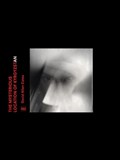David Allan Cates, award-winning writer of five novels, plumbs the quiet and bizarre complexities of decades-old love in this, his first collection of poetry. In a startling voice—meditative, playful, and erotic—Cates uses memory and imagination to create indelible images of the body and desire, of separation and longing. The speaker imagines the precarious predicament of young French lovers sitting on bench in Mexico, chronicles his great aunt Edna’s “parade of lovers,” or conjures an ancient people as they talked “to the sky or the earth/or invisible animals, chewed coca and staked/hairless enemies to the ground”; yet “sometimes/they loved--/did I mention that? Like we do.”
Located between the exotic and the domestic, between the lived and imagined, these nineteen poems, some of which appeared previously in The Sun and Transmission, among other publications, describe the off-balance and dangerous dance of lovers. In a world in which “we know sometimes/it’s the same Great Notion/that hoists magnificent stones and builds a great pyramid/as destroys a city and makes ashes of children—” these poems sweetly lack cynicism for enduring love. In one, the speaker anticipates reuniting with his wife after her sojourn at a monastery. And in another, a rootless couple can imagine, if only for a moment, how the volcanoes across the water might “bind the bay,” and give them a chance to begin again.
Because of—and despite—a world in which bombs fall and luck turns bad, the speaker in these poems struggles to situate himself—in a pond, on the ledge of a cliff, or through his own re-invention of the world: “Sparks fall and I seek shelter where I can--/naked on the wing, a hero in wet socks--/but I’m flattering myself again./It’s raining stars, love, I’ll say, and maybe you’ll hear me./ Maybe I’ll feel you near.”

